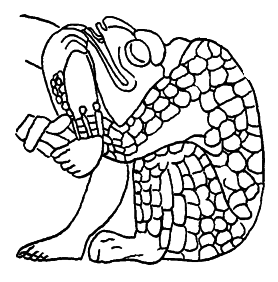Reason is the capacity of consciously making sense of things...

理性
(要約)
Reason is the capacity of consciously making sense of things...

池田光穂
● 理性(reason)の定義(→理性についてのくどい解説「理性」)
"Reason is the capacity of consciously making sense of things, applying logic, and adapting or justifying practices, institutions, and beliefs based on new or existing information. It is closely associated with such characteristically human activities as philosophy, science, language, mathematics, and art, and is normally considered to be a distinguishing ability possessed by humans.[ Reason is sometimes referred to as rationality.]"-Reason.
「理性とは、物事を意識的に理解し、論理を適用し、
新しい情報や既存の情報に基づいて慣習や制度、信念を適応させたり正当化したりする能力のことである。哲学、科学、言語、数学、芸術など、人間の特徴的な
活動と密接に関連しており、通常、人間の持つ特徴的な能力であると考えられている[理性は合理性と呼ばれることもある]。」
"Rationality is the quality or state of being rational – that is, being based on or agreeable to reason. Rationality implies the conformity of one's beliefs with one's reasons to believe, and of one's actions with one's reasons for action. "Rationality" has different specialized meanings in philosophy,economics, sociology, psychology, evolutionary biology, game theory and political science." -Rationality.
「合理性とは、理性的であること、つまり理性に基づ
いていること、理性にかなうことである。合理性とは、自分の信念が自分の信じる理由と一致していること、自分の行動が自分の行動の理由と一致していること
を意味する。「合理性」は、哲学、経済学、社会学、心理学、進化生物学、ゲーム理論、政治学などにおいて、さまざまな専門的意味を持つ。」(→合理性)
"The hermeneutic circle (German: hermeneutischer Zirkel) describes the process of understanding a text hermeneutically. It refers to the idea that one's understanding of the text as a whole is established by reference to the individual parts and one's understanding of each individual part by reference to the whole. Neither the whole text nor any individual part can be understood without reference to one another, and hence, it is a circle. However, this circular character of interpretation does not make it impossible to interpret a text; rather, it stresses that the meaning of a text must be found within its cultural, historical, and literary context." - Hermeneutic circle.
「解釈学的循環(ドイツ語:
hermeneutischer
Zirkel)とは、テキストを解釈学的に理解するプロセスを表す。これは、テキスト全体に対する理解は個々の部分を参照することによって確立され、個々
の部分に対する理解は全体を参照することによって確立されるという考え方を指す。テキスト全体も個々の部分も、互いに参照することなしに理解することはで
きない。しかし、この循環的な解釈の特性は、テキストを解釈することを不可能にするものではなく、むしろ、テキストの意味はその文化的、歴史的、文学的文
脈の中で見出されなければならないことを強調するものである。」
■理性的動物(animal rationale):
「理性的動物(animal rationale)という語は、「社会的動物」という語の場合と同じ基本的誤解にもとづいている。アリストテレスは、人間を一般的に定義づけようとした のでもなければ、人間の最高の能力を示そうとしたのでもなかった。彼にとって、人間の最高の能力とは、logos すなわち言論あるいは理性ではなく、nous すなわち観照の能力であって、その主要な特徴は、その内容が言論によっては伝えられないところにある」(アレント 1994:48)。
リンク
文献